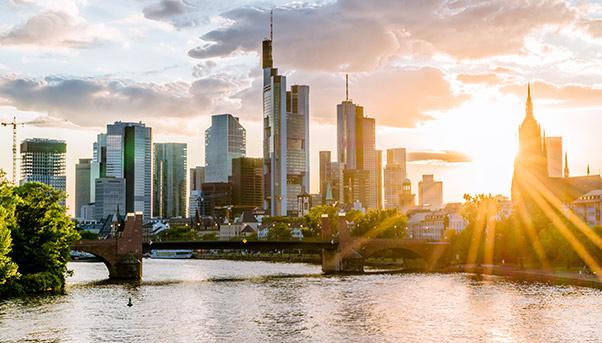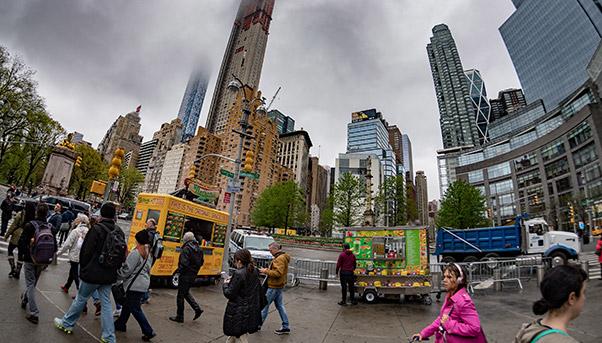
«Poor infrastructure means, in the long run, poor industrial production and an inability to respond to competition from, for example, Asian products – those that come from South Korea, Japan and China… countries that, when it comes to infrastructure, are second to none. Having modern power and transport networks, effective hydroelectric dams (and) efficient power distribution means being able to face international competition better».
Jean-Paul Fitoussi, a prominent European economist, wonders about the future of investment in Europe – and infrastructure – following the electoral victory of Angela Merkel in Germany.
Will Germany be more open to the idea of investing, ready to approve an infrastructure plan for the European Union that can contribute to boosting the economy?
«Unfortunately, I don’t think that the situation will improve. In fact, it could even worsen considerably given how the liberals, the new partners of the coalition that is slowly being put together (a new government is not expected until early December) are less flexible on the budget than the previous partner, the Social Democrats who are now in the opposition. More specifically, since the opposition has traditionally held some influence in this German political game, it could be that in some cases like more investment in infrastructure it could make an impression. But it will be the government to decide in the end».
Could there be even more monetary rigor?
«It seems that, in Germany, which has recently been through some dramatic years of having too much inflation, it has gone too far with its restrictive measures – only to arrive at a point where inflation is too low or there is even deflation. What it needs now is a serious public spending programme, beginning with infrastructure. This would lend support to the European economy and its export capacity».
Some years ago you wrote a book about the crisis called “Le théorème du lampadaire” (“The Theorem of the Street Light”). What does the title have to do with economics?
«We were deep in the economic crisis and the title referred to a popular story in France: about someone who was looking for his keys under a street lamp not because he was sure to have lost them there but because it was the only place where there was any light. The connection with the economy today is that if we keep looking under the same old street lamps like the man who lost his keys, we will lose every possibility of seeing things clearly. It will be because we fear the shadows and don’t dare to go where it is dark».
Are you referring to Europe or America?
«Well, both of them. Let’s start with Europe. Throughout the years of the crisis, Germany had price stability as its objective, and its economic policy and balance sheet reflected this. But they were two parametres that revealed themselves to being independent of economic and financial stability. By curtailing public spending in many countries – including mine (France) – and also Italy if not to mention Greece, the recession worsened, and it lasted a lot longer and left a long line of social misery and marginalization that will remain for many years to come. For many years, Europe pursued a policy of lowering public debt without managing to even do that».

Are you not too critical of Germany, this economic miracle of post-unification?
«Nobody doubts the country’s achievements nor those of big statesmen like Helmut Kohl. But during the crisis that began in 2008 there was a crisis of demand everywhere. But Germany felt it much less than other countries because it had an internal demand that counted less than that from abroad. So Germany only started to benefit from the arrival of the euro with the global crisis and for reasons that only have to do with the nature of its economy. Its focus on exports was more important than the advantages or disadvantages of having the euro. The only structural factor that I see is that Germany adopted a policy to drive things lower such as wages. And this is how it became more competitive».
And America?
«America became much more efficient after coming out of the crisis. When it (the crisis) happened, 10 years ago, it immediately opened rather than close the purse strings to public spending (and) recapitalized the banks, big companies (and) financial institutions (with the sole exception of Lehman Brothers). The result was a virtuous cycle that led to a quick recovery. The institutions that the state had financed recovered so well that they paid back with interest ahead of time the financing that they had received. So, in the end, the government actually gained from all of this. And America is experiencing a recovery that is now in its eighth year – a recovery and a public confidence that not even the controversies surrounding President Trump have managed to weaken».
Which parts of the U.S. president’s programme convince you the most?
«Better to ask which ones are doable. I don’t see now much room (for maneuvering) given the debate among Republicans in Congress about the tax cuts promised by Trump. What is more likely to happen – so long as they find an effective mechanism – is public-private partnerships, which are part of the infrastructure programme. Trump has promised hundreds of billions for public works, but this need (for investment) speaks for itself: bridges, railways and roads in America are at a frightful level of obsolescence. Hurricane Harvey this summer had devastating consequences because Houston’s system did not work and its sewers and canals proved to be insufficient. In Florida, the same problems showed up with Irma. What’s more, if we go back to Germany, most economists in Berlin have realized that this desire to avoid taking on debt has led to a lack of funding for public works (in a country) where infrastructure is also in poor condition.
This reticence is due to an overwhelming fear of putting debt on a balance sheet that already produces a surplus any which way you look at it: trade… balance of payments. Luckily in America there is no stiff resistance to the idea of going into debt and the agreement between Republicans and Democrats to raise add more of it …confirms this pragmatism. So the hope is that they manage to turn on the right street lamps».

